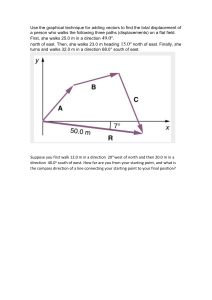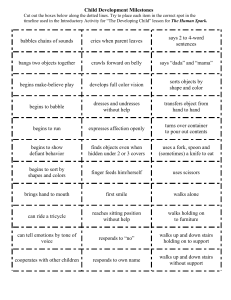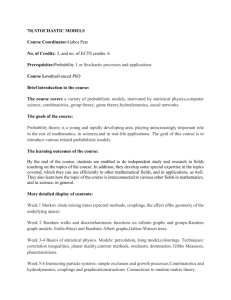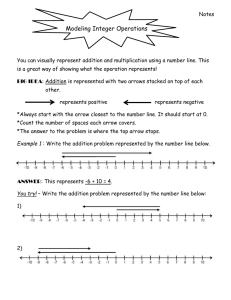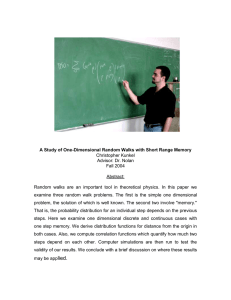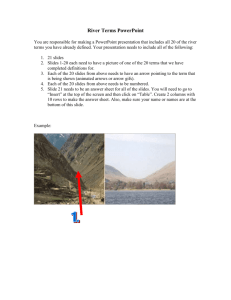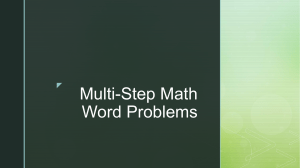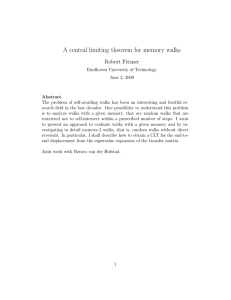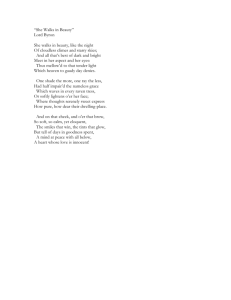A COMBINATORIAL RESULT WITH APPLICATIONS TO RANDOM WALK COUPLINGS
advertisement
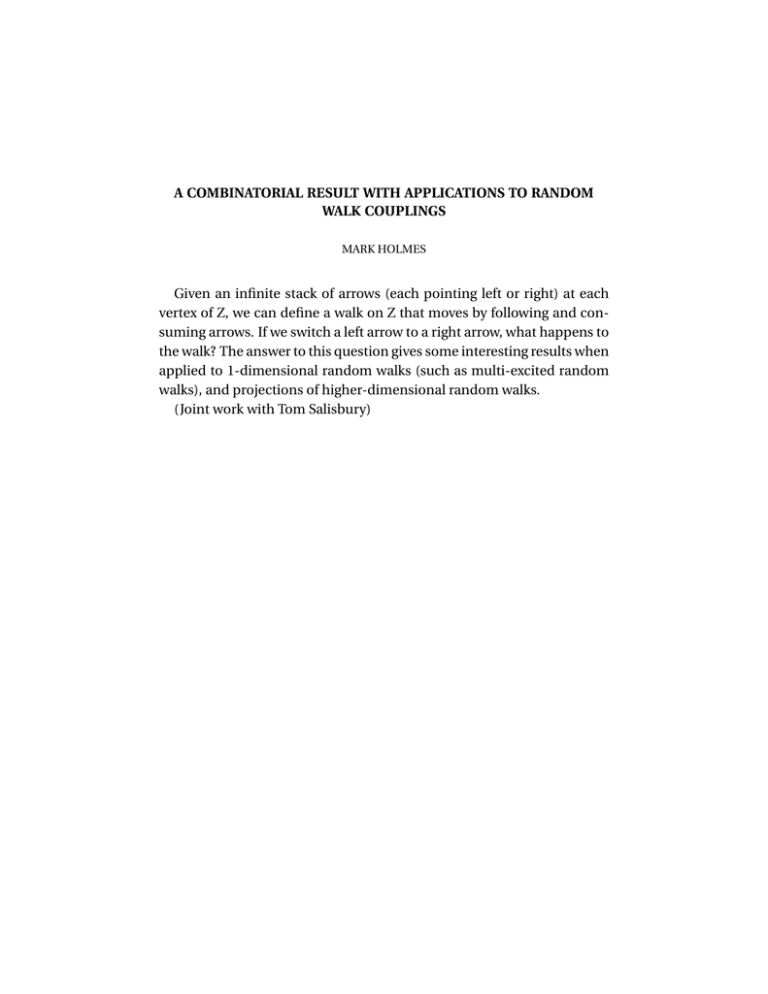
A COMBINATORIAL RESULT WITH APPLICATIONS TO RANDOM WALK COUPLINGS MARK HOLMES Given an infinite stack of arrows (each pointing left or right) at each vertex of Z, we can define a walk on Z that moves by following and consuming arrows. If we switch a left arrow to a right arrow, what happens to the walk? The answer to this question gives some interesting results when applied to 1-dimensional random walks (such as multi-excited random walks), and projections of higher-dimensional random walks. (Joint work with Tom Salisbury)

